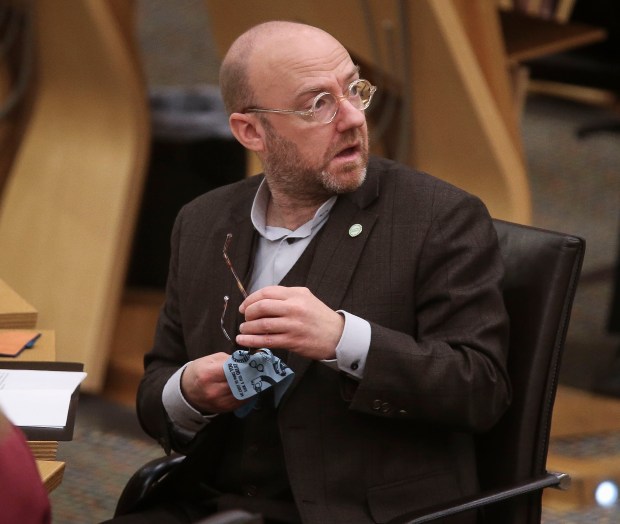Whenever the right gets itself in a froth over ‘Mickey Mouse’ degrees, I keep my head down. You see, I am the holder of such a qualification: a degree in film and television studies. I rush to point out that my student days preceded the global financial crisis. There were so many jobs sloshing around that we could dismiss criticism of these courses as a tabloid trope.
I wouldn’t change my ‘rip-off’ degree for the world
Let me describe the labour market that awaited meedja students in the mid-2000s. Every Monday, I’d pick up the Guardian at the student union. This was the old frumpy Guardian, before it slipped into a sleek little Berliner number, and inside was wedged The Bible: Media Guardian. God, it was glorious. Priggish, inky, eminently tearable, but glorious. Because once you skipped past a dozen finger-wagging articles about Rebekah Wade (as Mrs Brooks then was), you hit the recruitment ads. Sometimes as many as 20 pages of them. Wanted: news reporters. Education correspondents. Feature writers. Arts reviewers. Editors of news, sub- and picture desk. And that was just the print jobs.
I wanted to be a film critic. I know that sounds like ‘I wanted to be an astronaut’ but there was still a decent amount of freelance work to be picked up back then and the odd staff job if you were really lucky. Long story short: I graduated, the economy went south, print advertising went somewhere south of that, and I had to develop a sudden passion for news reporting and later political commentary. This probably qualifies my undergraduate studies as one of those ‘rip-off degrees’ that Rishi Sunak is cracking down on. (What happened to ‘Mickey Mouse’? Did Disney send a cease-and-desist?)
Thing is: I don’t feel ripped off. For one, I still manage to make a living wrangling words into sentences, so I’ve nothing to complain about. For another, I wouldn’t change my ‘rip-off’ degree for the world. My film degree was four years spent in an academic amusement park. An amusement park where all the rides were operated by Marxist critical theorists, but that just added to the intellectual exhilaration.
Film studies came of age in the mid-20th century and so film theory draws on disciplines and movements in the ascendancy then and since. Cinema is studied through psychoanalysis and semiology, structuralism and post-structuralism, second-wave feminism and queer theory, neo-Marxism and postcolonialism. We were assigned great wodges of Barthes and Althusser, Lacan and Deleuze, Raymond Williams and Stuart Hall. We even watched the occasional film. Mates studying law and medicine would tease me, demanding to know when critical race theory or gender studies would ever come up in real life. Who’s laughing now, folx?
It’s not just that being versed in obscure academic disciplines makes you oddly qualified to write about politics in 2023. Film studies was stimulating in its own right, exposing me to thinkers and ideas I never knew existed. Granted, these were usually bad thinkers and rotten ideas but the learning and debating was a thrill. My degree gave me so much with little practical application but it was endlessly fascinating to me.
Now, just because the Tories are having a go at university education doesn’t mean there are no problems there. As I’ve argued before, uni is mostly a racket and most people don’t need to go. In my case, it was about working-class vanity (both parents left school at 15) and having no idea what I wanted to do in life. It was drummed into my generation that you had to go to uni. There were no apprenticeships anymore: it was either the lecture hall or the Golden Arches. Get a degree, any degree, and it would open up doors that would otherwise be closed.
That jobs market is unrecognisable today. Stem skills are ubiquitous in recruitment ads. Digital capabilities remain important but AI looms overhead. ‘Soft’ degrees are less remunerative unless you go into HR or ESG and only sociopaths flourish in those jobs. There are also more apprenticeships, one of the unsung achievements of the Blair governments having been the revival of this route to training and employment.
Yet the tyranny of the vellum persists. Unnecessary professionalisation and rent-seeking credentialism have turned universities into gatekeepers for career paths that should not require three or four years of higher education. Credentialism excludes working-class candidates in particular, which is why a handful of US states and corporations including GM, IBM and Tesla have done away with degree requirements for a swathe of jobs.
Then there’s the content and quality of degrees themselves. An excessive focus on theory, minimal interest in practical relevance, highly ideological curricula, and over-reliance on doctoral candidates for teaching – all familiar to anyone who has taken an arts, humanities or social science degree in the last 50 years or so. Even universities boasting gifted scholars burden them with unrealistic research and publishing expectations, regardless of the impact on quality of teaching.
In defending the value of the qualifications they award, universities typically produce surveys that, lo and behold, show high percentages of their graduates working in a field related to their degree. It all depends on how you define ‘related’, I suppose, but even this isn’t a measure of a degree’s value or necessity. A more useful metric would be surveying graduates after five, ten and 20 years and asking how often the theories and academic frameworks they were taught at university come up in the course of their work.
If I had my druthers, I would hive off Stem into a handful of centres of excellence; combine law, medicine, dentistry, accounting and teaching into professional colleges; and make arts, humanities and social sciences the preserve of universities, fewer in number, with rigour at their heart, and entry requirements favouring academic and personal merit over ability to pay. In recognition of the innate value of a liberal arts education, profits generated by Stem centres and professional colleges would subsidise universities. Higher education institutions would have a duty of candour to prospective students about the employment and earnings potential of the degrees they offer.
Just because a degree isn’t financially lucrative doesn’t mean it’s intellectually unrewarding
If, like me, you’re nuts for liberal arts, left-brain disciplines terrify you, and you accept that you’ll never have to worry about paying the higher or additional tax rates, you can choose to attend university and seek employment where that kind of education is valued. Alternatively, if you’re one of those tacky materialistic people who fetishise things like rent money, car insurance, and the ability to pay utility bills, you can take a Stem or professional degree. Capitalist lackey.
If I had done a degree in something professional or vocational, right now I’d probably own my own home, a car, a pension, and be able to afford those bijou city breaks my friends are always taking. But Christ would I be miserable. Not that I’m not miserable as is, but I’d be suffocating-in-a-rigidly-structured-job miserable rather than plagued-by-writer’s-block-with-The–Smiths-on-shuffle miserable, which is so much more romantic.
That’s what the Prime Minister doesn’t seem to get. Just because a degree isn’t financially lucrative doesn’t mean it’s intellectually unrewarding. Telling young people that the value of education can be measured only by the salary it attracts – that’s the real rip-off.
Got something to add? Join the discussion and comment below.
Get 10 issues for just $10
Subscribe to The Spectator Australia today for the next 10 magazine issues, plus full online access, for just $10.




















Comments
Don't miss out
Join the conversation with other Spectator Australia readers. Subscribe to leave a comment.
SUBSCRIBEAlready a subscriber? Log in